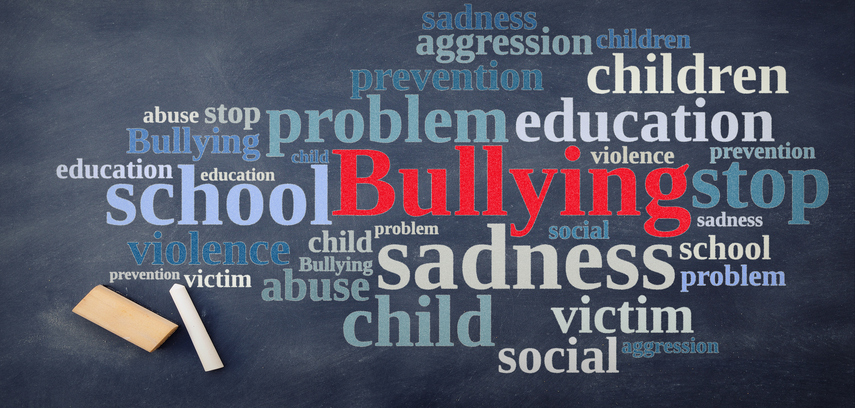Another school shooting is unfolding as we speak. Children killing other children. It’s unspeakable yet speak about it we must. As Catholics, we need to see these terrifying events through a different prism. Truth and compassion must be our guideposts, for if they are, we have an opportunity to recognize potential tragedy before it strikes.
I’m a survivor of school bullying turned author, speaker and activist, who works deep inside the trenches of America’s schools to help save lives. Every day, I hold hurting kids in my arms, listening as they pour out the pain inside of them. Some are bullies who admit they fantasize about bringing a gun to school, others are victims or outcasts who say the same thing. It’s taught me this: a suffering, lost soul, can’t be categorized or labeled. Mental illness, prior abuse, neurological disorders, revenge, violence in the media–the list is endless. What compels the act of violence is important to understand, but it’s our commitment as Catholic educators, to practice enlightened awareness and act upon it with truth and compassion that will make the ultimate difference.
Here are some ways that you can deepen your practice and help your students develop their own:
- Be curious. Curiosity leads to compassion. If you have a student who seems “off,” who isn’t comfortable engaging with others, the “loner” kid, look more closely. Most children don’t choose to alienate themselves. Something happened that caused the alienation. Find out as much about that student’s background as you can. The more you learn, the more compassion you’ll feel, and nothing breaks down barriers more than compassion.
- Take action. Reach out. Talk to this student. Talk to their parents. Talk to their other teachers, the counselor, siblings, whomever you think may have insight. Sometimes all it takes is the early intervention of one determined adult to save an entire school.
- Lead with truth and be guided by compassion as you work towards a plan of action to help this child. Don’t let someone else’s denial weaken your resolve. And above all, be relentless–administration, diocesan leadership, the child’s parents—whomever you need to partner with to sustain the intervention, stay the course.
- Incorporate the theme of awareness of others into assignments, quizzes, classroom activities and discussions. Let your imagination have full rein. Have students start a “Compassion Journal,” in which they’re encouraged to practice that awareness, take action to help someone if they seem sad or alone, and then write about it. If you have little ones, instead of a journal, perhaps they draw pictures of these experiences. The key is to keep reinforcing the concept of awareness the same as you would good grammar, respecting adults, doing your homework, or any other value that’s imparted regularly to students as part of our daily ritual. Add awareness wherever you can
- Give students a conversation starter card for reporting anything troubling that they observe as part of their awareness practice. Sometimes a child will want to come forward with a concern about another student, but they don’t know where to begin. These starter cards provide a script, with blanks they can fill in, to help them open up. You can have different versions for different situations that students typically don’t like talking about. You can create your own cards, but here’s one that I’ve used for reporting bullying behavior that’s been effective:
I need to tell you something. I don’t want to get anyone in trouble. I want to help them.
_________________ hurt me. (Fill in the name/names of the person who was hurtful to you). This is how they hurt me_____________ (Explain what happened). This is how it made me feel__________________(In one or two sentences explain how this person made you feel). This is why it made me feel that way_____________________(In one or two sentences explain why your feelings were hurt).
I’m not telling because I want______________ (name/names) punished. I’m telling because I think this person is hurting and I want you to help make their hurt stop so they stop hurting others. Please let me know after you’ve talked to (name/names), if I can help, too.
For some students, you may be the only stable adult in their lives. You may see yourself as an educator, but what you really are is a guardian angel. Just because your students can’t see your wings doesn’t mean they’re not there. And we must do everything we can, even if it means going beyond our comfort zone, to connect with that misunderstood child before they risk becoming a dark and dangerous young adult.
 Jodee Blanco is the author of four books on bullying, including the New York Times bestselling memoir, Please Stop Laughing At Me…. She is also the author of the NCEA’s new Anti-Bullying Survival Series. Jodee travels to schools, sharing her story to save lives, and has spoken to over a half-million people worldwide. For more information, please visit Jodee’s website.
Jodee Blanco is the author of four books on bullying, including the New York Times bestselling memoir, Please Stop Laughing At Me…. She is also the author of the NCEA’s new Anti-Bullying Survival Series. Jodee travels to schools, sharing her story to save lives, and has spoken to over a half-million people worldwide. For more information, please visit Jodee’s website.
